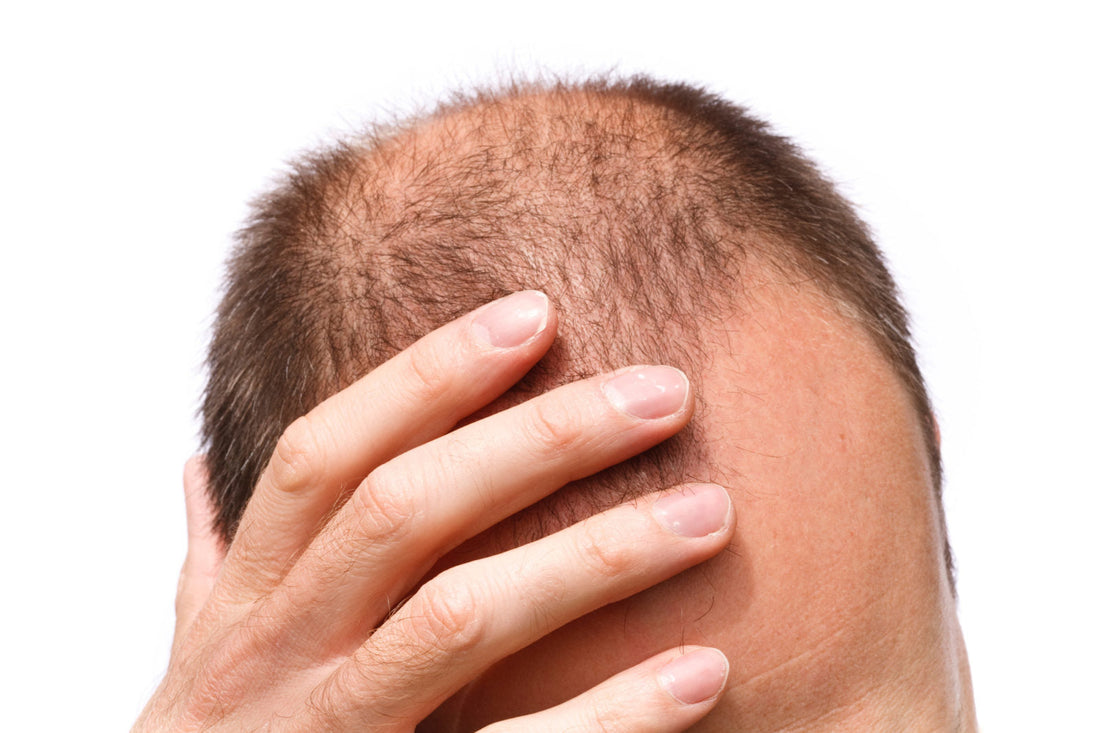Understanding Why Men Experience Baldness More Frequently
Reviewed by Zang and Ridwan
Ever been curious about why certain health conditions tend to impact one gender more than the other? Or why hair loss is such a common issue for men compared to women? Here's the answer you've been looking for.
How many men in your life can you think of who are experiencing hair loss? It's likely you know more men dealing with it than women.
Have you ever stopped to ask why men are more prone to baldness than women?
While genetics are often blamed, and they play a significant role, the reality is that men are simply more susceptible to alopecia, a condition that leads to hair loss.
This is particularly true when it comes to androgenetic alopecia.
What Is Androgenetic Alopecia?
You might recognize this condition as “male-pattern” baldness.
For men, it typically begins with the hairline receding, creating the well-known “M” shape. The hair also starts thinning at the crown, which can eventually lead to partial or total baldness.
However, androgenetic alopecia isn’t exclusive to men. This form of hair loss impacts both genders, with around 50 million men and 30 million women affected in the U.S. alone. So, what’s the big question?
Then Why Do Men Go Bald More Than Woman?
The key difference is that androgenetic alopecia rarely causes complete baldness in women. Instead, the hairline stays intact, but the hair becomes thinner across the entire scalp. So, while women do experience hair loss, it tends to be less noticeable.
However, alopecia of all types seems to affect men more frequently than women. This is because, in general, men are more susceptible to alopecia.
There’s a significant reason behind this.
Alopecia Has a Huge Connection to Testosterone
Both men and women have testosterone, but men have significantly higher levels.
Alopecia occurs when enzymes in the body convert testosterone into another compound called dihydrotestosterone (DHT), which is essentially a by-product of testosterone. Since testosterone is the primary male hormone, this conversion affects men more profoundly than women.
Once DHT floods the body, hair follicles are at risk. The primary role of DHT is to shrink hair follicles, making it harder for hair to grow and, eventually, causing the follicles to stop functioning altogether.
However, not every man will be negatively impacted by DHT.
How Does Genetics Come into Play?
The way androgenetic alopecia is inherited isn’t fully understood.
Genetics definitely seem to play a role, though. Some people believe that if a man’s father is bald, the chances of him losing his hair are higher. Others suggest it’s passed down from the mother’s side. In any case, the condition tends to run in families.
There’s also a general agreement that the enzymes responsible for converting testosterone into DHT are inherited. The number of these enzymes can also be a key factor—more enzymes typically lead to greater hair loss.
Another important genetic aspect is the number of receptors on an individual’s hair follicles.
It Is Pretty Tough to Override Genetics
Understanding why men go bald might not provide much comfort, especially if you’re already facing hair loss.
However, if hair plugs and creams aren't your solution, consider scalp micropigmentation (SMP). While it won't restore your hair, it will certainly help you regain your confidence.
